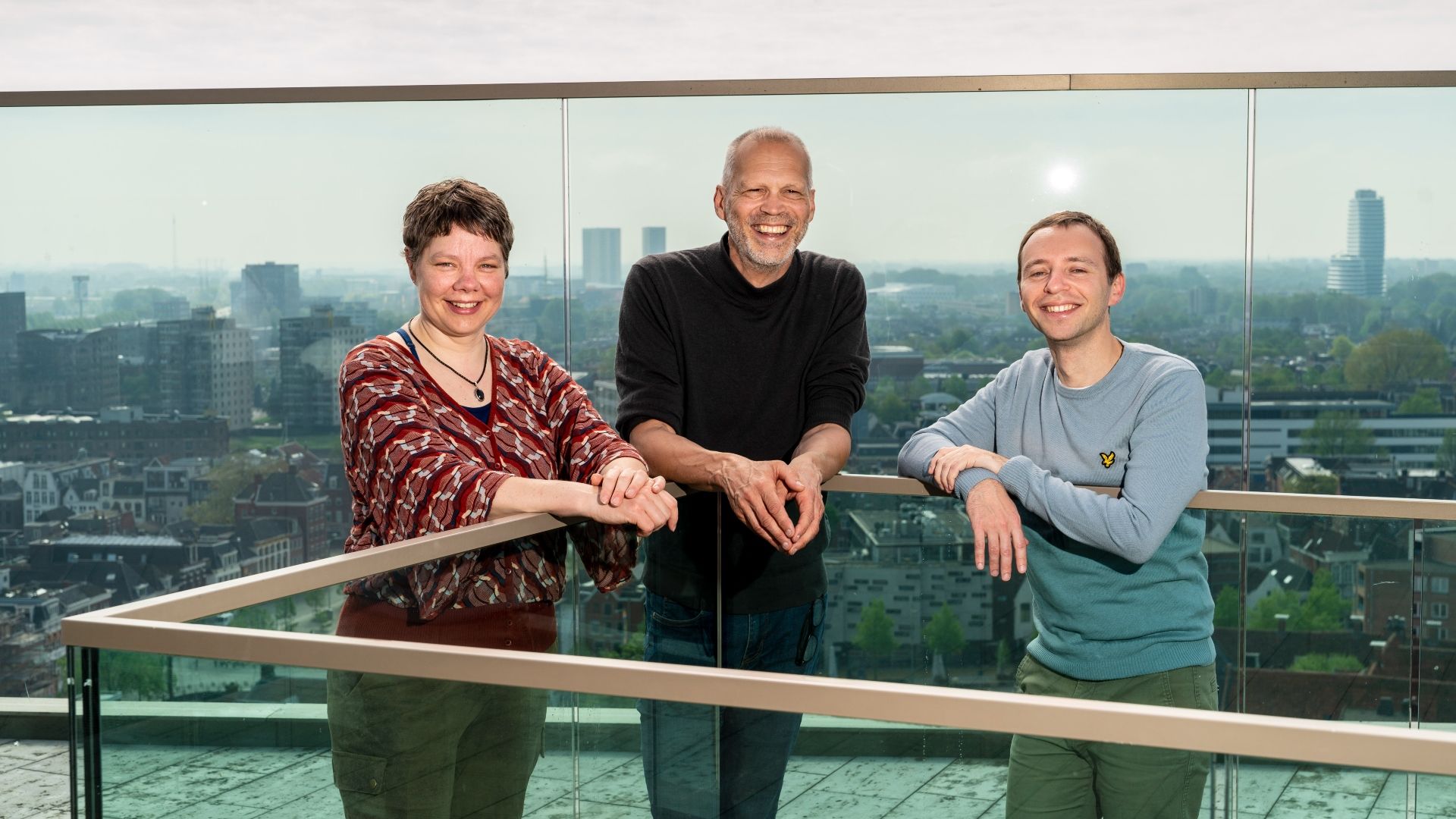Groningen carbon-neutral by 2030
The Wubbo Ockels School for Energy and Climate is working in close collaboration with the municipality of Groningen, Hanze University of Applied Sciences Groningen, and the Alfa College on the ‘Groningen carbon-neutral by 2030’ action plan. This action plan falls under the EU ‘Mission on 100 Climate-Neutral and Smart Cities by 2030’, the aim of which is to deliver at least 100 European climate-neutral, smart cities by 2030 and to ensure that these cities then perform the role of experimentation and innovation hubs to enable all European cities to follow suit by 2050.
Pivotal to this mission is its emphasis on the need for an interdisciplinary approach. A good example of the application of an interdisciplinary approach to the realization of climate goals is the use of smart materials for the insulation of buildings. Smart insulation materials can enhance climate control. They keep buildings warm in the winter and cool in the summer, which ultimately results in the reduction of CO2 emissions. There are financial benefits too. ‘This creates opportunities for policy innovation within the municipality of Groningen,’ explains Jan Kees Kleuver, municipal strategic advisor on international affairs. ‘It’s our job to look beyond the basic energy and heat cost-benefit equation to what we can do at community level, helping people to make their homes climate-neutral and affordable, and to consider the positive knock-on effects that such actions can have in other areas, such as care and the fight against poverty.’
There are also significant gains to be made in the field of mobility. Shared mobility (the use of shared cars, mopeds, bikes and even scooters) facilitates a sustainable lifestyle. It stimulates the use of electric vehicles, thereby lowering CO2 emissions and reducing the overall environmental impact.

Preparatory meetings
A number of working sessions are taking place this spring, bringing together people from different disciplines and sectors to work on the ‘Groningen carbon-neutral by 2030’ action plan. Key issues being addressed during these meetings include the scope of the plan, measuring and monitoring CO2 footprints, governance, and public involvement. Consideration will also be given to energy poverty, mobility, waste, food, and heat.
Bringing their knowledge, practice, and policy to the table in these preparatory co-creative sessions are representatives of the municipality of Groningen, Hanze University of Applied Sciences Groningen, the Alfa College, and the University of Groningen.
Interdisciplinary approach
‘Challenges like these demand an interdisciplinary approach,’ explains Dr Maaike de Heij, scientific coordinator of the Wubbo Ockels School for Energy & Climate. ‘By pooling the knowledge and skills of experts in change management, leadership, legislation, technology, and so on, we can examine the challenge of making Groningen CO2-neutral by 2030 from every angle so that together, we can arrive at an ambition plan that will actually bring about concrete change.’
Other examples of the strategic challenges involved in this project are how to make the region a leading example for energy transition and how to get everyone invested in the change process.

Background information on the Mission on 100 Climate-Neutral and Smart Cities
This mission is one of five EU missions that constitute a new, innovative concept in EU policy. They can be compared to the mission to put a man on the moon, in the sense that they are commitments to solve a number of the greatest challenges facing the world today (adjusting to climate change, protecting our oceans, seas, and waters, creating greener cities to live in, and promoting healthy soil and healthy food) by 2030. The aim of this body of actions, research and innovation projects, policy measures, and citizen engagement initiatives is to achieve concrete goals that will have a major societal impact.
The aim of the Mission on 100 Climate-Neutral and Smart Cities is to deliver at least 100 European climate-neutral, smart cities by 2030 and to ensure that these cities then perform the role of experimentation and innovation hubs to enable all European cities to follow suit by 2050. The European Commission has set up a special ‘Net Zero Cities consortium’ to this end, comprising a broad range of 33 different parties, a number of which will be familiar to people in Groningen, such as Cartif, Energy Cities, ERRIN, Eurocities, Fraunhofer, ICLEI, Tecnalia, TNO, and Viable Cities.
In 2022, the European Commission selected 112 cities to participate in the mission, including a number of frontrunners but also some cities that still have a long way to go in terms of achieving climate neutrality. 100 of them are in EU member states and 12 are in what are referred to as ‘associated countries.’ 12 Dutch cities submitted an Expression of Interest. The following six were selected in addition to Groningen: Amsterdam, Rotterdam, Den Haag, Utrecht, Eindhoven, and Helmond.
In the autumn of 2023, the municipal authorities will submit the ‘Groningen CO2-neutraal in 2030’ action plan to the European Commission, outlining Groningen’s proposed contribution to the Mission on 100 Climate-Neutral and Smart Cities.
More information
More news
-
15 September 2025
Successful visit to the UG by Rector of Institut Teknologi Bandung
